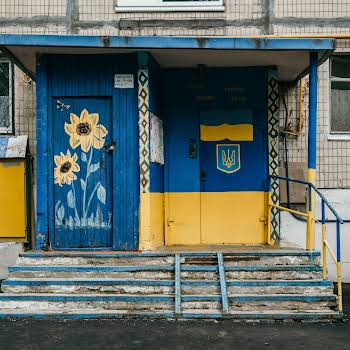Irish Refugee Council lays out recommendations for ending Direct Provision by 2023
The Irish Refugee Council have laid out a detailed path to end Direct Provision by 2023 and comes a month before the Government’s own report to disassemble the 20-year-old "temporary measure".
27th Jan 2021
Direct Provision has come under more and more criticism in recent years. The UN termed it a “severe violation of human rights” due to inhumane living conditions, long waiting periods and the murky nature of the for-profit companies who run many of Ireland’s 39 Direct Provision Centres, which hold 7,000 inhabitants.
Although wait times have been reduced since that Censure, the average wait time in Direct Provision now is still 15 months. During that time, opportunities to find a job or immerse into the local community are very limited thanks to impediments placed on those staying in Direct Provision. Mostly run by private companies and foreign firms who are paid by the state, very few centres are purpose-built facilities designed to house many families over such an extended period.
Former convents, caravan parks and Mosney, the old Butlin’s holiday village, are just some examples of properties currently used as Direct Provision Centres.
The Irish Refugee Council’s new report sets a framework around disassembling Direct Provision as advised by the Day report, a government research report led by Dr Catherine Day that was released last October. That report suggested a three-phase roadmap to ending Direct Provision by 2023, while the new IRC report delves into the specificities needed to ensure that goal is achieved.
The IRC report centres primarily around accommodation. Centres have been the focus of numerous complaints of overcrowded, poor living conditions, no family or shared facilities and a ban on cooking your own food. The crisis has only worsened with the arrival of a highly infectious virus.
The IRC report suggests a “blended model”, incorporating eight different accommodation models.
These include state-built accommodation, community schemes, social enterprise, blocking leasing, housing assistance payment and independent living. It looks specifically at existing urban renewal and vacant properties that can be put into use as soon as possible.
However, the report also places an emphasis on integration and independence for those living in direct provision, making jobs more accessible and helping asylum seekers become part of the local community. The “out of sight, out of mind” nature of many Direct Provision Centres, predominantly located in rural areas without a surrounding local community, has created an awareness gap between the Irish public and asylum seekers hoping to make Ireland home.
It’s already been proven that where there is integration, there is more community support. Teachers and students of Tullamore College successfully campaigned Government to grant the Muojeke family the right to stay in Ireland when they heard that one of their students, Nonso Muojeke was going to be deported along with his mother and old brother.
We will have to wait and see if the Government’s own plans match up to the Irish Refugee Council’s expectations.























